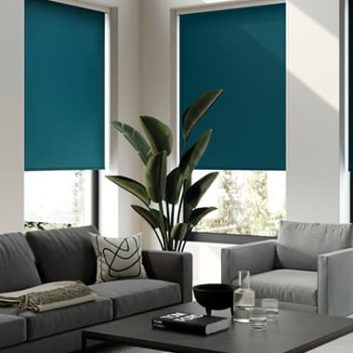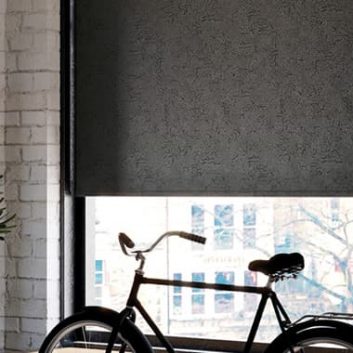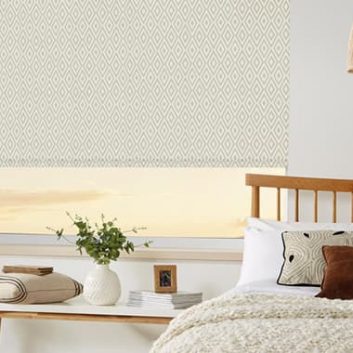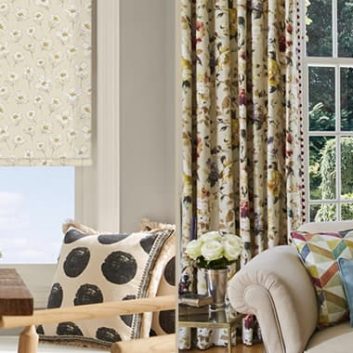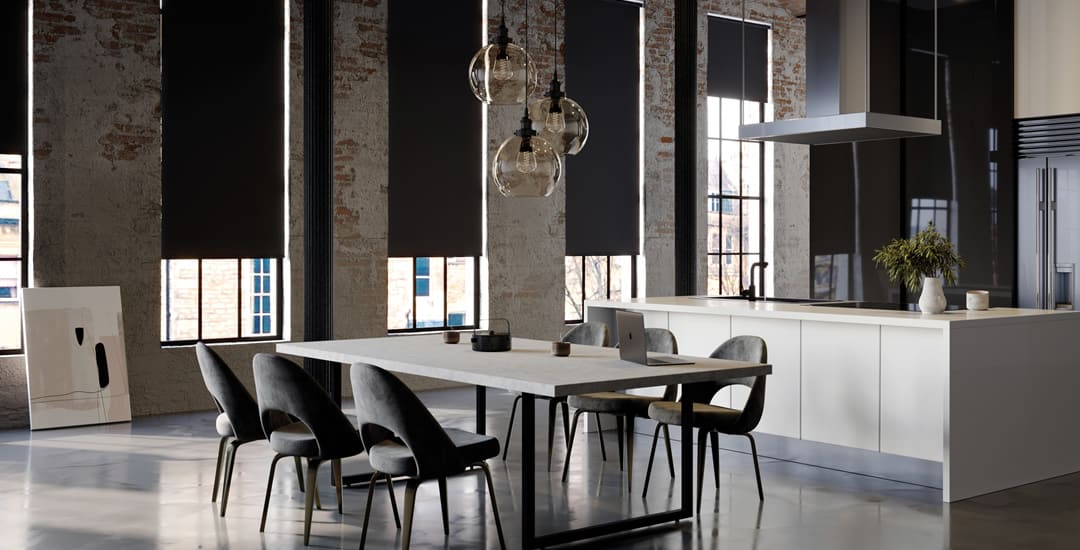
Do black blinds keep heat out? Not really, no. Black blinds tend to hold onto heat rather than being a good insulator or barrier against it, so if you’re trying to keep a room cooler in summer and are looking for blinds that can help to do this, black blinds aren’t the best idea.
Are black or white blinds better then? Looking just in terms of how they hold or handle heat and cold, what constitutes “better” depends on what you want to achieve. Overall, white blinds can reasonably be considered to be better in terms of their ability to support an ambient temperature to some degree in both hot or cold weather; they’re definitely better than black blinds in this respect if you look at the year-round picture.
The other complicating factor is that what you want in the summer might well be different from what you want in winter; keeping the heat out in summer and in during the winter is usually the preferred option for most people!
In this blog post I’ll provide a more comprehensive answer to help you to get a basic understanding of how a blind’s colour can affect the temperature or comfort levels in a room, and tell you whether black or white blinds are the better choice overall.
Are black or white blinds better?
To tackle questions like “are black or white blinds better,” it’s important to clarify firstly that we tend to be talking about the colour of the lining or the back of the blind in this instance – the part that faces the outside world – rather than the colour, pattern, or design you have facing into your room.
Black blinds aren’t that common overall at all, either in terms of lining colour or main colour; and few are black on the back or outside-facing side, with the exception of unlined and blackout black roller blinds, black vertical blinds, and black painted or finished real wood blinds and Venetian blinds.
Linings-wise, many people make the reasonable assumption that blackout blinds are lined with black fabric; both due to use of the term “blackout” and because it just seems to make sense that the best way to keep light out would be to use the darkest possible colour.
However, the usual shade for the linings of blinds of all types (including blackout blinds) is a light colour – white, off-white, or cream. Unlined blinds tend to have the same colour or pattern on the back as they do the front, although it may well be obvious that this is the reverse of the fabric in terms of its appearance.
Black blinds aren’t in great demand among buyers and window blind linings don’t tend to be black; but is there a reason for this, and at the end of the day, are black or white blinds better? As I mentioned in the introduction, if you really wanted to get technical about things, you might say that the answer to this changes with the seasons!
However, I know exactly zero people that change their blinds every few months or that keep a summer set and a winter set, and when it comes to the type of blinds that customers want and that are the best people-pleasers and all-rounders in terms of us as a blinds manufacturer being able to provide this, white blinds have the edge.
Do black blinds keep heat out?
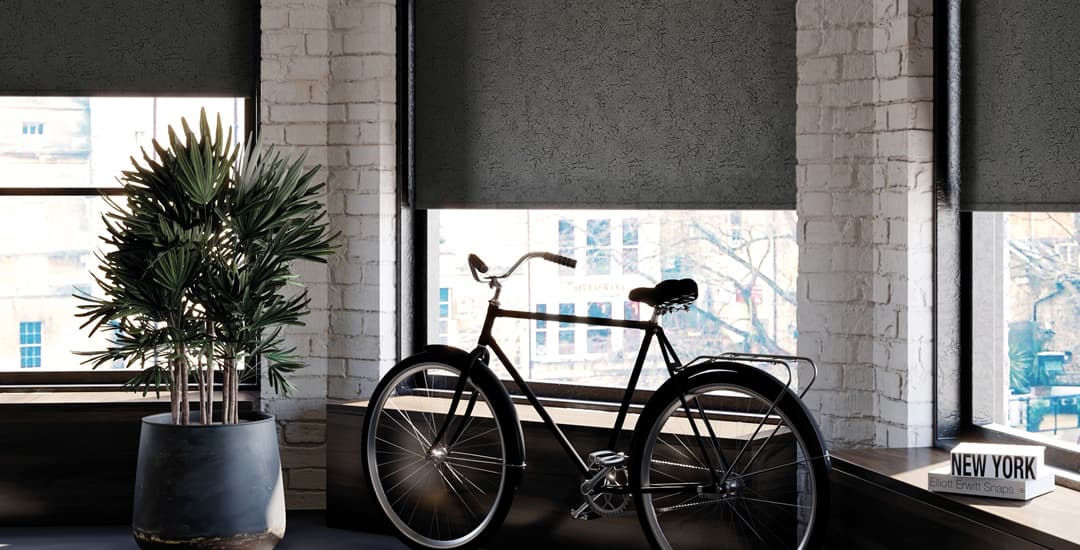
This is a hard “no.” Black as a colour is not a good insulator; I definitely have vague memories from high school science classes of learning that black in fact absorbs and harbours heat more effectively than any other colour, which presumably is why goths never look their best in the summer.
This means that blinds that are black on the reverse/lining/outside-facing part will absorb heat from the sun during the summer faster than I absorb mojitos on a sunny Saturday afternoon, and then hold onto it for longer too, which will contribute to your room potentially becoming uncomfortably hot as a result.
This isn’t ideal, obviously; and is one of the main reasons why black blind linings aren’t really a thing.
On the flipside though, this does have some advantages in winter, when your goal is to keep as much of the heat that you pay good money for on the inside of your home as possible.
Black blinds or blinds with black lining will hang onto the warmth a little, helping to insulate the window more effectively than other colours like-for-like, and so, doing a bit towards keeping your room at an ambient temperature.
However, in and of itself, this is rarely a good enough reason to ask for black-lined blinds; a good thermally insulated blind with the usual lighter-coloured lining does a perfectly good job in this respect too.
Do black blinds make the room hot in summer?
They don’t make the room hot per se; if colours could generate heat, well, actually that seems like a super concept for some kind of alt-world novel, so forget I said anything and definitely don’t nick my idea.
But moving swiftly on, in a way they kind of do. Black blinds make the room hot in summer because they hold onto the heat rather than allowing it to disperse as much as a lighter colour blind would. This in turn may raise the temperature of the room or stop it from dropping as fast as it otherwise would.
However, if you really want a blind that is either black or black-lined, don’t forget that this heat-harbouring effect only applies when the blind is closed, and the black fabric is on duty catching some rays.
Generally, closing your blinds in summer will help to keep rooms a little cooler, which we usually recommend as a result; but when it comes to a black or black-lined blind, this approach would work against you, and you’ll probably be better off/more comfortable with the blinds open.
What colour blinds keep the heat out most effectively in summer?
White or another light-coloured blind is the lining shade you want in order to insulate against the sun in summer, and to lower the extent to which the room heats up and holds onto the heat.
It might seem then that this means white or light-coloured blinds are duly disadvantaged in winter; but they serve as a liner and insulator thanks to the material they’re made of, which largely negates any small difference the colour itself makes.

